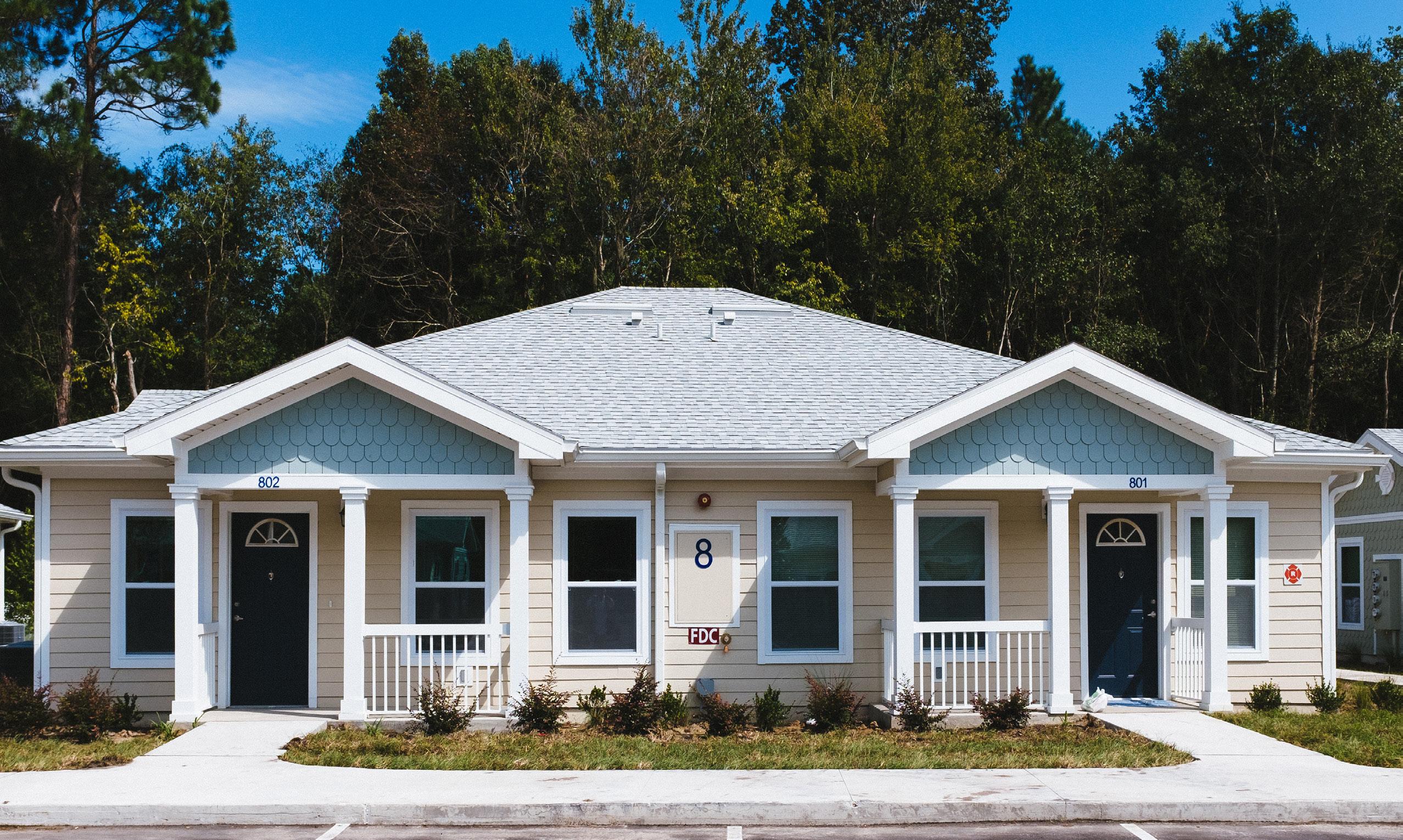TABLE OF CONTENTS INTRODUCTION Studies around the nation show that cost savings to public systems, particularly for crisis services, occur when individuals who are high utilizers of these services are provided with supportive housing.1 Supportive housing is a highly effective strategy that combines permanent affordable rental housing with communitybased services to help people maintain a stable home. It is a proven model to help people who are not stably housed or who are experiencing homelessness, as well as persons with disabilities who can live independently in their communities with supportive services. Florida Housing Finance Corporation is the state’s housing finance agency with the mission of financing affordable homeownership opportunities and development of rental housing using federal and state resources. Late in 2012, Florida Housing hosted a forum with state agencies and key stakeholders to discuss best practices to integrate supportive housing and community-based services.2 The group agreed it would be helpful to pursue a pilot to develop supportive housing targeting persons experiencing chronic homelessness who are high utilizers of expensive, publicly funded crisis services, such as emergency rooms and jails. The purpose of the pilot would be two-fold: to evaluate whether cost savings are possible in Florida when providing supportive housing; and to measure whether residents participating in the pilot could also have improved personal outcomes. This report describes the Florida High Needs High Cost Pilot and summarizes the results of the cost savings evaluations as well as residents’ personal outcomes. After summarizing the pilots’ results, the report discusses concerns that arose during implementation related mainly to the fragmentation of the housing and services infrastructure in Florida, particularly around coordination and funding of services in supportive housing settings. Finally, the report outlines housing and services best practices in serving persons who are high utilizers of public services, providing a housing stability framework to guide future work in this area. A glossary of terms is provided at the back of the report.
People experiencing chronic homelessness typically have complex and long-term health conditions, such as mental illness, substance use disorders, physical disabilities, and other medical conditions. This report uses the term “high needs” to refer simply to the panoply of conditions many persons experiencing homelessness have. As a result of these often acute, unresolved concerns, these people may rely heavily on public crisis services. This report refers to persons in these situations as “high utilizers.” Implementation of the Pilot. Using $10 million appropriated by the State Legislature, Florida Housing awarded development financing through a competitive application to three experienced non-profit housing providers with committed local supportive service partners. In addition to the applicant’s ability to successfully develop and manage a property and experience serving persons experiencing chronic homelessness, Florida Housing sought housing organizations that were part of a broader community partnership with a network of participating organizations that would be able to provide the services and supports necessary for the pilot. The Community’s Approach to Prioritizing Individuals for Residency. The highest scoring applications described a comprehensive, seamless network of agencies and other organizations to identify and screen potential residents, and coordinate access to community-based supports and resources before and during residency. Key partners expected to be involved in such a network included the local homeless assistance Continuum of Care (CoC) lead agencies and member organizations; Florida’s behavioral health Managing Entities, Medicaid Managed Care Plans and providers of supportive services; associated local governments and other entities providing emergency, health care, law enforcement, legal and other services; and associated state agencies/regional offices. Florida Housing also sought pilots in communities with established approaches to identify, screen, prioritize and assess chronically homeless individuals’ interest in and appropriateness for supportive housing, and determine how they would use these approaches to create a pool of prospective high utilizer residents for the pilot sites.
1
https://www.csh.org/resources/faq-is-supportive-housing-cost-effective/.. https://www.csh.org/resources/faq-is-supportive-housing-cost-effective/
2
Participating state agencies included the Florida Department of Children and Families, Elder Affairs, the Agency for Persons with Disabilities, the Agency for for Health Care Administration (the state’s Medicaid office) and the Governor’s Office.
Findings of the Florida High Needs High Cost Pilot
9








